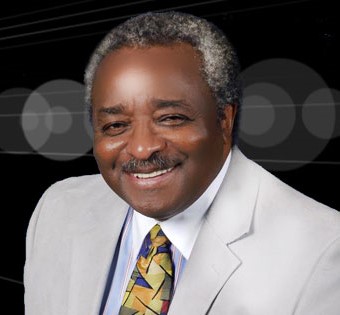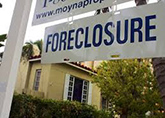FORECLOSURE – KNOWING YOUR RIGHTS MATTERS.
Introduction
Suppose you’ve struggled to earn a decent salary to buy a home, you lived there for years with your family, giving them a sense of security and comfort. You’ve been a good citizen and contributed to the community. But life happened, you lost a job, lost a significant other or someone suffered a serious health crisis. Suddenly, you’re faced with losing the only home you and your family have known. What can you do? Where do you turn for help?
Some proclaim that the worst of the foreclosure crisis is over and has reached its peak. Others believe that there is a new wave coming. The headlines about the devastating effects of foreclosure on families, neighborhoods and communities have all but disappeared from the public view, but many still suffer and will continue to do so as banks now begin to press forward on homes that have been lingering in the pre-foreclosure stages.
In the District of Columbia, Realty Trac’s October 2015 report shows a 100% increase in pre-foreclosure filings and a 66.7% spike in auctions. The 4.9% delinquency rate in DC ranks seventh among states that allow banks to foreclose without a judicial proceeding.
Zillow, an online property-listing site shows (as of 22 November 2015) 130 foreclosure sales, 20 auctions and 14 short sale properties. The most significant statistic though is the 1351 homes in pre-foreclosure. This can only mean that we should be prepared for another on-slaught of foreclosure battles as pre-foreclosure homes move through the foreclosure process.
But apart from these cold numbers, one need only spend a day in the new Judicial Foreclosure Court created last April in D.C. Superior Court. Peer through the window of Courtroom 317 and you will be stunned by the nearly 100 foreclosure cases on the Court’s docket every day, mostly people of color, faced with foreclosure and even homelessness.
The grave consequences of mortgage delinquency and subsequent foreclosure have been documented in a number of studies and reports. Not only are your finances and credit ruined making it difficult to rent let alone buy another home, but the impact on the homeowners’ mental and physical health, marriages or relationships, and the lives of their children can have long term devastating effects. Neighborhoods and communities suffer too when foreclosure leads to homelessness, greater dependency on social services and loss of generational wealth. Foreclosure affects us all directly or indirectly.
As a practicing attorney who sees the effect of the known predatory lending practices in poor and modest income communities in D.C. every day at the Courthouse, I feel compelled to do something. Because knowledge is power, Living With The Law, in cooperation with the Benjamin Banneker Development Corporation and other sponsors will host a two-day Forum on Foreclosure - April 1st and 2nd 2016. Leading up to this event, LWTL will post a series of articles designed to help you better understand the foreclosure predicament, what to expect and offer general guidance to help stave off a foreclosure sale or determine the best course of action that fits your situation. These articles and the Forum will arm you with some knowledge to help you understand and hopefully, resolve your particular circumstances.
JOIN US AT THE FORUM AND MEET PROFESSIONALS WHO CAN HELP
Presented below is the first article in the series.
ARTICLE ONE
Talk Like The Bankers – Understanding Fundamental Terms and Concepts Before and During Foreclosure.
Very few read in their entirety the massive amount of documents shoved towards them at the closing table. We just want to sign those documents and turn the key to our new homes. But as the old adage goes – it’s in the fine print.
Default/Delinquency. The first step that leads to foreclosure is being delinquent on your mortgage, that is, failing to pay the monthly payment. Missing one mortgage payment or paying it more than 30 days after it is due will have an adverse impact on a borrower’s credit. Most lenders will normally start foreclosure proceedings after a borrower has missed three or more consecutive payments. But since the 2008 mortgage crisis, many lenders have been slow in taking foreclosure action. That delay may provide a defense. More about that in a later article.
Demand letter. This is a letter or notice from your lender stating you're in default of your mortgage terms and informing you of your right to cure or correct the default. This may also be called a "breach letter" or a "notice of intent to foreclose." Some lenders fail to take this step. Again, that may provide a defense for you.
Deed. A written document used to transfer or convey the title or an interest in real property.
Deed in lieu of foreclosure. A lender may offer you this as an alternative to foreclosure where the lender agrees to accept a deed for the mortgaged property from the owner.
Deed of trust or trust deed. In the District of Columbia the primary document that gives the lender/mortgage holder the right to hold your home as a security for the loan and the power to sell it when you are in default. D.C law allows the trustee to foreclose without going to court and getting a foreclosure decree.
Deficiency Judgment. If a foreclosure sale doesn't bring enough money to cover the amount owed to the lender, the lender may sue you for the difference between the amount obtained at sale and the amount you owe which may include unpaid amounts plus interest and any penalties. D.C allows deficiency judgments.
Mortgage Payment: The monthly amount on your statement you are obligated to pay on the principal and interest on your loan. Some loans may include real estate taxes and insurance payments.
Non-judicial foreclosure. D.C allows the lender or trustee to sell mortgaged property without having to obtain court approval.
Notice of default (NOD). Written notice to a borrower that payment is late and states how and when to make payment to bring the loan up-to-date. Lenders who fail to take this step may provide you with an escape in court.
Notice of sale. The lender must give this notice, required by state law, to the property owner stating the details for the foreclosure sale, including date, place and time. In DC, no foreclosure sale may take place unless the lender gives written notice, by certified mail (return receipt requested), to the borrower at his last known address. This notice must also be sent to the Mayor of the District of Columbia, or his designated agent. Both notices must be sent at least thirty (30) days prior to the sale, with the thirty (30) day period beginning on the day the notice is received by the Mayor. This notice must be given in addition to any notices set forth by the court, the mortgage or the deed of trust.
Power of Sale. This is the power given to the lender, mortgagee or trustee in a mortgage or trust deed to sell the mortgaged property if the owner/borrower defaults. If the deed of trust or mortgage contains a power of sale clause and specifies the time, place and terms of sale, then the specified procedure must be followed. If the terms of the sale are not established in the deed of trust, the lender, or his representative, must obtain a court order specifying the terms of the sale.
Pre-Foreclosure. The period after a notice of default but before formal legal action to foreclose is taken.
Right of Redemption. Some states give the homeowner the right to buy back or recover their home by paying the outstanding amount owed plus all charges and penalties within a certain time frame before or after foreclosure. D.C. does not have a right of redemption.
Who can foreclose on a loan? Often a bank, mortgage lender or financial services company authorized to make mortgage loans. Sometimes it’s difficult to tell who owns your loan and therefore who has the right to foreclose or who to make payment arrangements with because loans are often re-sold to other investors or loan servicing companies. The company to which you send your mortgage payments (the Servicer) may only be acting on behalf of a lender to process your payments. Some servicers are authorized to handle the loan default and foreclosure. To find out who has the right to foreclose, you need to know the name and contact information of your mortgage holder– the entity that actually owns your loan. A good place to start is with the servicer’s contact information on your statement. If the servicer is either unaware of who the owner is, or is unable to reveal that information to the borrower, other means of locating them will need to be used.
It’s also important to know if your loan is a Conventional Loan or HUD insured loan. Conventional loans are any loans NOT insured by any government agency such as FHA (HUD) or VA. Conventional loans are either insured or guaranteed by Fannie Mae or Freddie Mac (non-governmental agencies). Borrowers can determine if either Fannie or Freddie Mac owns their mortgages by visiting their websites.
Another method for finding out about your loan is through the MERS® Servicer ID. It is a free service that provides information on the current servicer or investor of a loan.
If all other options are exhausted, borrowers should seek the counsel of an attorney or a certified housing counseling agency. A list of local agencies will be provided later in this series.
Nothing contained in this article shall be construed as legal advice.






